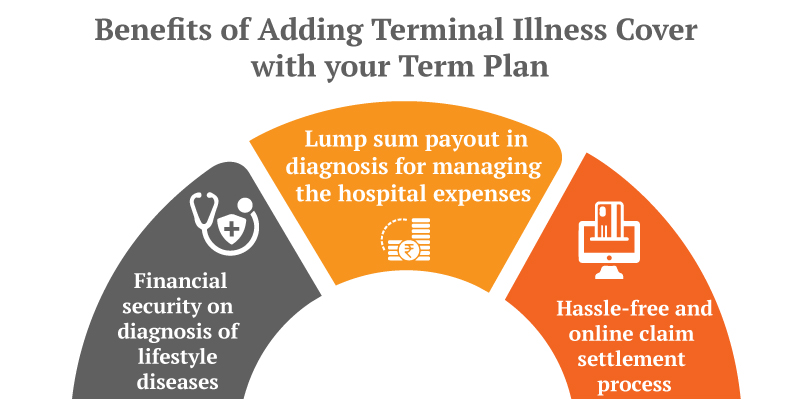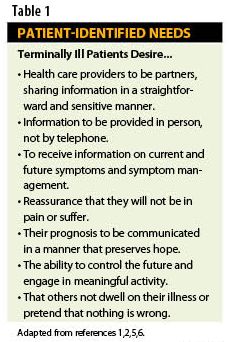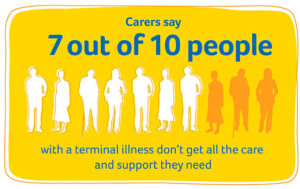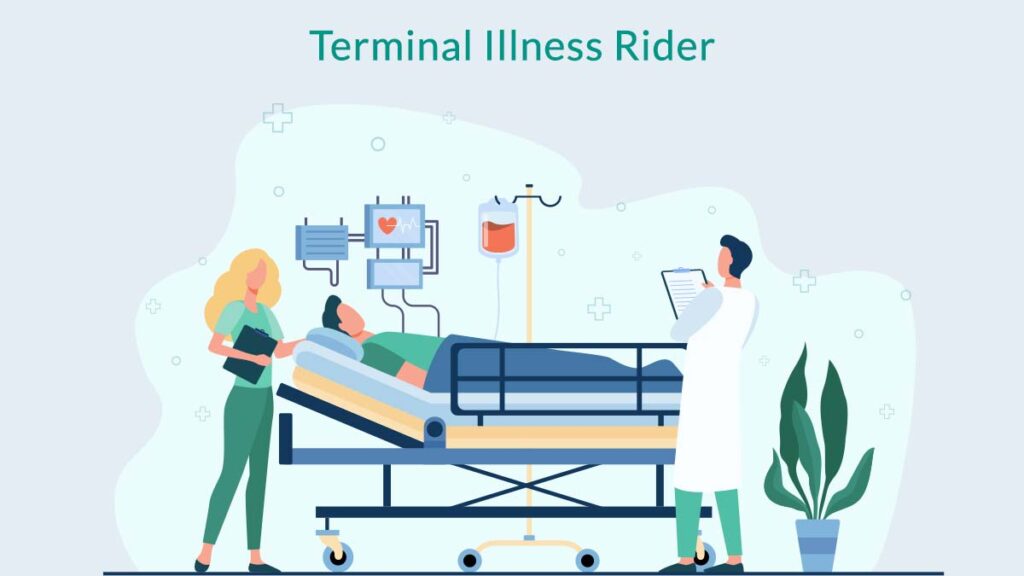The end of life is an inevitable part of the human experience. No one knows when their time will come, but when it does, it is important to be prepared. For those who are faced with a terminal illness, the journey can be difficult and overwhelming.
This article provides an overview of what to expect when dealing with a terminal illness, from coming to terms with the diagnosis, to making final arrangements. We hope that this information will provide some guidance and support during a difficult time.
Contents
- 1 Understanding Terminal Illness
- 2 Facing Terminal Illness
- 3 Dealing With Anticipatory Grief
- 4 Initiating The Difficult Conversation
- 5 Making End-of-Life Planning Decisions
- 6 Opting For Hospice Care
- 7 Philosophizing Life And Death
- 8 Making The Most Of The Time You Have
- 9 Making Time To Say Good-Bye
- 10 Conclusion
- 11 A Word From Therapy Mantra
Understanding Terminal Illness

A terminal illness is a disease that cannot be cured and will eventually lead to death. Terminal illnesses can be caused by many different conditions, including cancer, organ failure, and Alzheimer’s disease.
Terminal Illness Vs. Critical Illness
It’s important to understand the difference between a terminal illness and a critical illness. A terminal illness is incurable, while a critical illness can be treated and often cured.
Types of Terminal Illness
There are many different types of terminal illness, each with its own set of symptoms and prognosis. Some common types of terminal illness include:
- Cancer: Cancer is a broad term for a group of diseases that occur when cells in the body begin to grow out of control. There are many different types of cancer, each with its own set of symptoms and treatment options.
- Organ failure: Organ failure occurs when one or more of the body’s organs stops functioning properly. This can be caused by many different conditions, including diabetes, heart disease, and liver disease.
- Alzheimer’s disease: Alzheimer’s disease is a type of dementia that causes problems with memory, thinking, and behavior. Symptoms of Alzheimer’s disease typically worsen over time, and the disease is ultimately fatal.
Facing Terminal Illness

When someone is diagnosed with a terminal illness, they and their loved ones must face the reality that they will eventually die. This can be a difficult process to go through, as it can be hard to accept that death is inevitable. It is important to allow yourself to experience a wide range of emotions, including sadness, anger, fear, and denial. Doing so in a healthy way can help you come to terms with your terminal illness.
Toll On Loved Ones
Terminal illness not only takes a toll on the person who is sick but also on their loved ones. Witnessing a loved one suffer can be difficult, and it is common to feel helpless. It is important to remember that you are not alone in this experience and that there are people who can help you through it.
Dealing With Anticipatory Grief

Anticipatory grief is the grief that people experience when they know that someone they love is going to die. This type of grief can be difficult to deal with, as it can be hard to accept the reality of death. It is important to allow yourself to experience a wide range of emotions and to express them healthily.
How To Deal With Them
If you are facing a terminal illness or dealing with anticipatory grief, there are a few things you can do to help yourself through it.
- First, it is important to allow yourself to experience a wide range of emotions and to express them healthily.
- Second, it is important to talk about your feelings with your loved ones.
- Finally, it is important to seek out support from professionals or other resources if you need it.
Initiating The Difficult Conversation
When you are ready to initiate the conversation about your terminal illness, there are a few things you should keep in mind.
- First, you should choose a time when you are feeling well and have the energy to have a long conversation. It is also important to be clear about what you want to say and to have an idea of how your loved ones might react. You may want to consider rehearsing what you want to say before the conversation.
- Second, you should be prepared for a range of emotions from your loved ones. They may feel shocked, sad, or even angry. It is important to allow them to express their emotions and to offer support.
- Third, you should be honest about what you are feeling and what you expect in the future. This can be a difficult conversation, but it is important to be as open and honest as possible.
Making End-of-Life Planning Decisions

When you are faced with a terminal illness, you will need to make some difficult decisions about your end-of-life care. These decisions can be overwhelming, but it is important to take the time to consider all of your options.
What To Consider While Making End-of-Life Decisions
There are a few things you should keep in mind while making end-of-life decisions.
- First, you should consider your personal preferences and values.
- Second, you should consult with your doctor to understand your medical options.
- Third, you should talk to your family and friends to get their input.
- Fourth, you may want to seek guidance from a spiritual guru.
- Fifth, you should make sure to consider all of your options before making any decisions.
How Doctors Can Help
Doctors play an important role in helping patients and their families deal with a terminal illnesses. They can provide information about the disease, its prognosis, and available treatments. They can also help patients and their families make end-of-life decisions.
How Spiritual Gurus Can Contribute
Spiritual gurus can also contribute to the process of dealing with a terminal illness. They can provide guidance and support to those who are facing a difficult time. Gurus can also help patients and their families make end-of-life decisions.
Opting For Hospice Care

Hospice care is a type of care that focuses on comfort and quality of life, rather than cure. It is typically provided to people who are terminally ill and have a life expectancy of six months or less.
Hospice care can be provided in a variety of settings, including hospitals, nursing homes, and the patient’s home. Hospice care teams typically include doctors, nurses, counselors, social workers, and volunteers.
The goal of hospice care is to improve the quality of life for both the patient and their loved ones. Hospice care can provide relief from pain and other symptoms, as well as emotional and spiritual support.
If you are considering hospice care for yourself or a loved one, it is important to talk to your doctor. They can help you understand what to expect and make sure that you are receiving the best possible care.
Deciding to enter hospice care is a difficult one. However, it can be a valuable option for people who are terminally ill and want to focus on comfort and quality of life. Hospice care teams can provide the support and resources you need to make the most of your time.
Philosophizing Life And Death
When you are facing a terminal illness, it is natural to philosophize about life and death. You may find yourself thinking about the meaning of life and what happens after we die. These are difficult questions to answer, but they can help you come to terms with your terminal illness.
How To Philosophize Life And Death Healthily
When philosophizing about life and death, it is important to do so in a healthy way. This means that you should not dwell on negative thoughts or get lost in your head. Instead, you should focus on the positive aspects of life and try to find meaning in the experience.
This means taking the time to appreciate your loved ones, your accomplishments, and the things that bring you joy. You should also try not to dwell on the negative aspects of your illness or the prospect of death.
Making The Most Of The Time You Have
Facing a terminal illness can be difficult, but it is important to remember that life is still beautiful. Enjoy the time you have left and make memories that will last a lifetime. So, once you have come to terms with your terminal illness, it is important to make the most of the time you have. This means doing things that you enjoy, spending time with your loved ones, and living each day to the fullest. It is also important, to be honest about your feelings and to talk about death when you are ready.
Making Time To Say Good-Bye

One of the most important things you can do when facing a terminal illness is to make time to say goodbye to your loved ones. This can be a difficult conversation to have. But it is important to do it in a way that feels comfortable for you. You may want to consider writing a letter or recording a video message.
How To Talk About Death
It can be difficult to talk about death, especially when you are facing your mortality. But it is important to have these conversations with your loved ones. You may want to consider talking to a counselor or spiritual adviser.
How Can a Counsellor help
As a terminal illness progresses, it can be difficult to come to terms with what is happening. A counselor can help you understand your feelings and healthily work through them. They can also provide support for your loved ones as they deal with their grief.
A counselor can also help you make end-of-life decisions, such as how to allocate your resources and what kind of medical treatment you want (or do not want) to receive. They can also assist you in philosophizing about life and death, which can be a difficult but necessary process for some people.
Making the decision to see a counselor is a personal one. However, if you are struggling to come to terms with a terminal illness, they can be a valuable resource. Counselors can provide the support and guidance you need to make the most of the time you have left.
Conclusion

If you are facing a terminal illness, several resources can help you through this difficult time. These include your doctor, family and friends, spiritual gurus, and end-of-life planning resources. It is important to take the time to consider all of your options and to make decisions that are right for you. Remember, you are not alone in this experience. Some people can help you through it.
A Word From Therapy Mantra
Your mental health — Your psychological, emotional, and social well-being — has an impact on every aspect of your life. Positive mental health essentially allows you to effectively deal with life’s everyday challenges.
At TherapyMantra, we have a team of therapists who provide affordable online therapy to assist you with issues such as depression, anxiety, stress, workplace Issues, addiction, relationship, OCD, LGBTQ, and PTSD. You can book a free therapy or download our free Android or iOS app.


